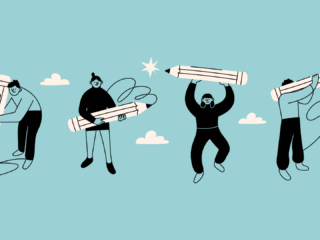As a project manager at Leff, content comes across my desk that spans many different industries. It’s not often that I sit down to dinner with my fiancé (and two dogs, waiting for something to fall) to discuss grocery trends or what is happening in the retail world. What does make its way into our conversations, though, are the interesting and sometimes daunting facts I learn every day about sustainability and climate action—through both our work with clients and our own research and analysis.
To put it simply, when you learn that human activity has pushed the planet two times beyond the “safe operating space” on at least four planetary boundaries, you put your fork down.
We’ve worked on content and researched about how sectors and regions can achieve net-zero emissions, prepare for the energy transition, and stimulate economic growth in the process; what businesses can do to become more resilient as they work to decarbonize; and the important role new technologies will play on the path to net zero. While there can be a fair amount of doom and gloom to these conversations, there’s also aspiration, hopefulness, and purpose. The science and analysis behind both the problem and the solutions provide a path forward. As such, our work has helped make me a more conscious consumer. Besides our grocery items, which I hope become more eco-conscious in the future, our household is nearly plastic-free. What’s more important, my heightened understanding of sustainability topics has given me the power to research the products I purchase and the companies I purchase them from, including actively seeking out organizations that are B Corp certified.
There’s much to be done—individually and at a larger scale. While 90 percent of executives believe sustainability is important, only 60 percent have implemented a strategy. It can feel like an insurmountable challenge, but given what the data show, there is little choice but to tackle it. We believe that strong, strategic communications and content strategies play a role in engaging stakeholders and inspiring progress—and we’re glad to work in that space and have an impact.
One of the trends I’m personally eager to watch play out is the impact these strategies—or lack thereof—could have on talent. Gen Z and millennials have made their voices heard and effected real change since the onset of the COVID-19 pandemic in late 2019, demanding flexibility in the workplace and pushing for wellness and mental health to be a priority. These generations are also on track to change how companies think about and approach sustainability because they demand environmental responsibility. For example, this Deloitte survey shows that 49 percent of Gen Z and 44 percent of millennials made career choices based on personal ethics.
While pursuing sustainability may feel daunting, we all have the power to make informed decisions. And I’m privileged to work at a company that believes it’s our responsibility to do so—and to help other companies do the same.



Leave a Reply
You must be logged in to post a comment.